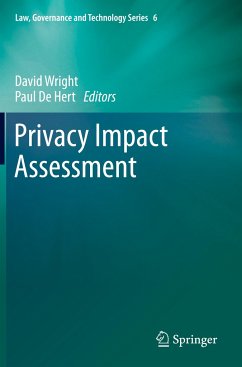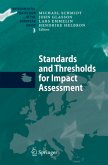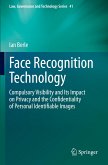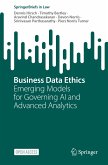Virtually all organisations collect, use, process and share personal data from their employees, customers and/or citizens. In doing so, they may be exposing themselves to risks, from threats and vulnerabilities, of that data being breached or compromised by negligent or wayward employees, hackers, the police, intelligence agencies or third-party service providers. A recent study by the Ponemon Institute found that 70 per cent of organisations surveyed had suffered a data breach in the previous year.
Privacy impact assessment is a tool, a process, a methodology to identify, assess, mitigate or avoid privacy risks and, in collaboration with stakeholders, to identify solutions.
Contributors to this book - privacy commissioners, academics, consultants, practitioners, industry representatives - are among the world's leading PIA experts. They share their experience and offer their insights to the reader in the policy and practice of PIA in Australia, Canada, New Zealand, the United Kingdom, the United States and elsewhere.
This book, the first such on privacy impact assessment, will be of interest to any organisation that collects or uses personal data and, in particular, to regulators, policy-makers, privacy professionals, including privacy, security and information officials, consultants, system architects, engineers and integrators, compliance lawyers and marketing professionals.
In his Foreword, surveillance studies guru Gary Marx says, "This state-of-the-art book describes the most comprehensive tool yet available for policy-makers to evaluate new personal data information technologies before they are introduced."
This book could save your organisation many thousands or even millions of euros (or dollars) and the damage to your organisation's reputation and to the trust of employees, customers or citizens if it suffers a data breach that could have been avoided if only it had performed a privacy impact assessment beforedeploying a new technology, product, service or other initiative involving personal data.
Hinweis: Dieser Artikel kann nur an eine deutsche Lieferadresse ausgeliefert werden.
Privacy impact assessment is a tool, a process, a methodology to identify, assess, mitigate or avoid privacy risks and, in collaboration with stakeholders, to identify solutions.
Contributors to this book - privacy commissioners, academics, consultants, practitioners, industry representatives - are among the world's leading PIA experts. They share their experience and offer their insights to the reader in the policy and practice of PIA in Australia, Canada, New Zealand, the United Kingdom, the United States and elsewhere.
This book, the first such on privacy impact assessment, will be of interest to any organisation that collects or uses personal data and, in particular, to regulators, policy-makers, privacy professionals, including privacy, security and information officials, consultants, system architects, engineers and integrators, compliance lawyers and marketing professionals.
In his Foreword, surveillance studies guru Gary Marx says, "This state-of-the-art book describes the most comprehensive tool yet available for policy-makers to evaluate new personal data information technologies before they are introduced."
This book could save your organisation many thousands or even millions of euros (or dollars) and the damage to your organisation's reputation and to the trust of employees, customers or citizens if it suffers a data breach that could have been avoided if only it had performed a privacy impact assessment beforedeploying a new technology, product, service or other initiative involving personal data.
Hinweis: Dieser Artikel kann nur an eine deutsche Lieferadresse ausgeliefert werden.
From the reviews: "A volume devoted to one of the privacy tools currently in use to evaluate privacy risks. The book offers a broad and worldwide perspective, with 20-plus chapters contributed by privacy scholars, public and private sector practitioners, and regulators. It's the first volume on the subject. ... Anyone tasked with defining PIA requirements through policy, rule, or law or simply with conducting an individual PIA will be richly rewarded by reading this volume." (Robert Gellman, First Monday, Vol. 19 (9), September, 2012) "A handbook for those data protection and privacy professionals working in the field ... . it gives a comprehensive overview of PIA around the world; it identifies open issues; and it provides the reader with best practices examples of PIA in order to improve any future PIA exercises. ... This volume provides a rich set of information and reflections, experiences and examples on PIA, which makes it a truly outstanding contribution in the field-both for practitioners and for academics working in this area." (Nils Zurawski, International Data Privacy Law, Vol. 2 (4), November, 2012) "Taking a truly international perspective, and with contributions from a large number of leading practitioners, compliance leaders and academics, this publication is in turn historical record, academic study and empirical evaluation. ... It is unquestionably an interesting read, with a wealth of experience presented from other countries and multinational companies in relation to the practical realities of using PIAs. ... this book is likely to be seen as a highly valuable guide." (Stephanie Pritchett, Privacy & Data Protection, Vol. 12 (5), June, 2012)








